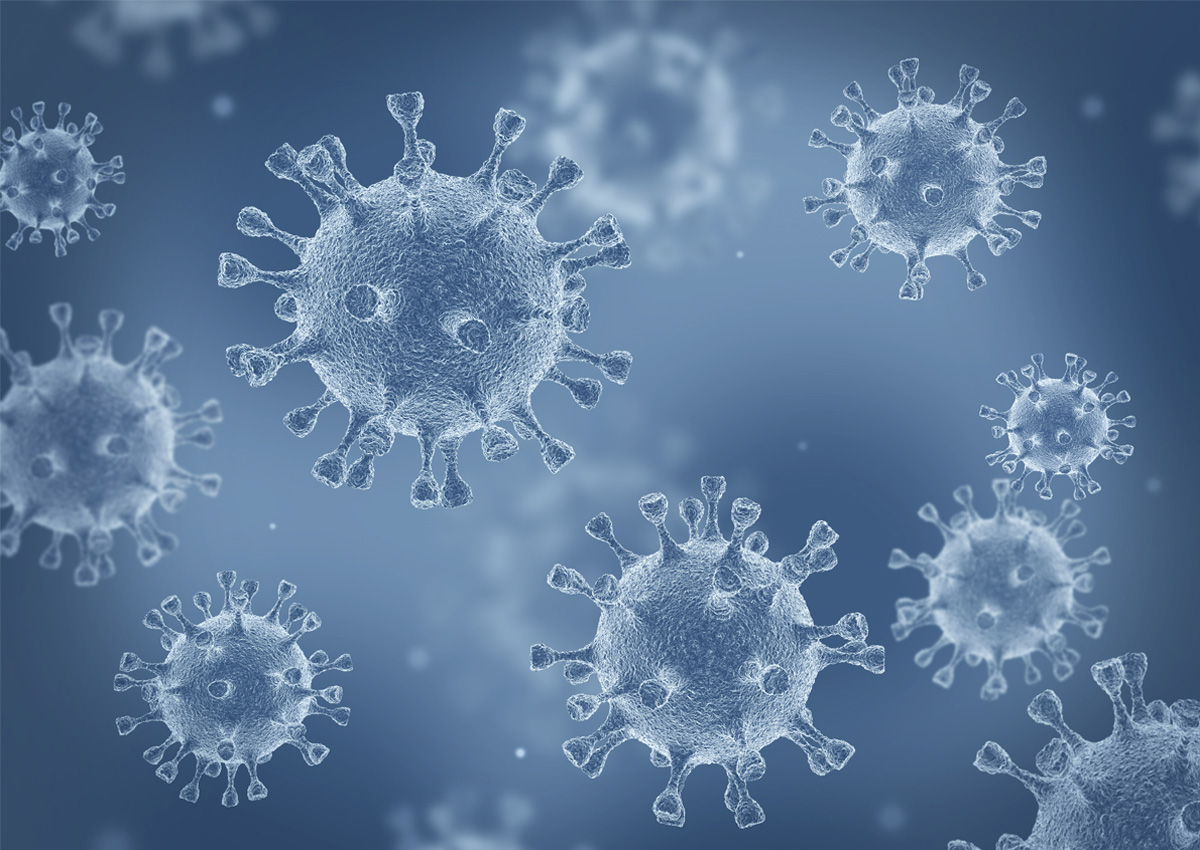
Study Reveals SARS-CoV-2 Jumped from Bats to Humans without Much Change
March 17, 2021| |
A study conducted by a collaboration between researchers in the UK, US, and Belgium shows that since December 2019 and for the first 11 months of the SARS-CoV-2 pandemic, there has been very little 'important' genetic change observed in the hundreds of thousands of sequenced virus genomes.
Using HyPhy, a state-of-the-art analytical framework at Temple University, Philadelphia, the research team was able to tease out the signatures of evolution embedded in the virus genomes. The study's first author Dr. Oscar MacLean from the University of Glasgow explains that this does not mean no changes have occurred, as mutations of no evolutionary significance accumulate and ‘surf' along the millions of transmission events like they do in all viruses.
Prof. David L. Robertson from the University of Glasgow Centre for Virus Research in Scotland said that the reason for the ‘shifting of gears' of SARS-CoV-2 in terms of its increased rate of evolution at the end of 2020, associated with more heavily mutated lineages, is because the immunological profile of the human population has changed. He added that the virus towards the end of 2020 was increasingly coming into contact with existing host immunity as the numbers of previously infected people increased. This will select for variants that can dodge some of the host response, together with the evasion of immunity in longer-term infections in chronic cases (e.g., in immunocompromised patients), these new selective pressures are increasing the number of important virus mutants.
For more details, read the article in Science Magazine.
| |
You might also like:
- Study Shows Climate Change May Have Driven Emergence of SARS-CoV-2
- UChicago Creates First Computational Model of Entire COVID-19 Virus
- Pocket K No. 58: COVID-19 Treatment Efforts Using Plant Technologies
Biotech Updates is a weekly newsletter of ISAAA, a not-for-profit organization. It is distributed for free to over 22,000 subscribers worldwide to inform them about the key developments in biosciences, especially in biotechnology. Your support will help us in our mission to feed the world with knowledge. You can help by donating as little as $10.
-
See more articles:
-
News from Around the World
- Gene Discovery to Help Peaches Adapt to Climate Change
- Study Shows Rising Temperatures Hurt Rice Yields
- Bacterial Strains Isolated in International Space Station Could Help Grow Plants in Mars
- Experts Highlight Importance of Scicom and Farmer Adoption in Building Knowledge on Biotech
- Invasive Weed Extract Could Help Treat Cancer and Type 2 Diabetes
- Food Security as Important as National Security: Punjab Agri Minister
- New South Wales Lifts 18-year Ban on GM Crops
- Discovery Ends Long-Standing Photosynthesis Controversy
-
Research Highlights
- OsMBD707 Overexpression Leads to Changes in Rice Growth and Development
- Multiple Statistical Analyses Show Compositional Equivalence of Bt and non-Bt Rice Varieties
-
Plant
- ISAAA Webinar: Innovative Tools for Crop Breeding
-
Health
- Study Reveals SARS-CoV-2 Jumped from Bats to Humans without Much Change
-
Read the latest: - Biotech Updates (April 17, 2024)
- Gene Editing Supplement (April 10, 2024)
- Gene Drive Supplement (February 22, 2023)
-
Subscribe to BU: - Share
- Tweet

